#episode two the best
Explore tagged Tumblr posts
Text
okay I’ll say it Visions Season 2 better than Season 1

#mine#episode two the best#still thinking about it 24 hrs later#but i love all the episodes#and the animation
13 notes
·
View notes
Text


Thanks for listening to my sad backstory. Anyway, here's Wonderwall.
[First] Prev <–-> Next
#poorly drawn mdzs#mdzs#wei wuxian#lan xichen#lan wangji#madam lan#This normally would have been two separate comics but I felt like it was a far better joke to have them together.#Enjoy the rare double feature comic!#I was listening to this episode - scripting out and preparing for a longer and heartfelt comic on this scene.#And then Lan Xichen pulled out his flute and started playing unprompted.#I could not contain my laughter. I know it is trying to be emotionally resonate and the flute is pretty but...#It really does have the energy of “Okay thanks for listening to my tragedies and traumas. I don't know how to segue out of this.”#This madam lan design is inspired by Qourmet's design! Really good stuff that I was not able to do more with in this one panel.#Speaking of...I know it is ambiguous on purpose and we are only told what happened through LXC's POV but...#I always interpreted madam lan's passing as a suicide. I think LXC was told it was illness to soften the blow.#She was stuck in a house with maybe a servant coming by to give her food. One day a month she saw her children.#Of course she was warm and loving in their memories-#She was trying to give them a version of her that would be remembered as such. She wanted to protect them from the truth.#She did her best but she was already dead a long time ago. She must have felt like a ghost haunting a house.#Love to her was waiting. And both her boys inherited that view of love.
3K notes
·
View notes
Text

That's how it went, right?
#^^#i feel that i need to spend more time (before finishing tma) on making more memes#yeah...#this is time well spent for sure#lol#tma#tma podcast#tma meme#tma memes#the magnus archives#jonathan sims#jon sims#tma jon#tma spoilers#tma 160#tma 160 episode#tma 81#tma 81 episode#tma season four#tma season two#tried to tag spoilers the best i can
906 notes
·
View notes
Text




THE PITT -> 1x14 | 8:00 P.M.
#the pitt#the pitt spoilers#thepittedit#parker ellis#michael robinavitch#john shen#tvedit#cinematv#dailyflicks#tvarchive#tw: blood#sophgifs#i can't believe they brought two of the best characters at the very end... like wdym i can only have them for 4 episodes
516 notes
·
View notes
Text

Oh so YOU GUYS can monologue for hours but my man yorick tries to have a nice conversation after regaining his ability to speak AND YOU GANG UP ON HIM???? I see how it is!!! The double standards are crazy!!!
#shitpost#it’s always two annoying bitches telling each other exactlyyyyyy#Mr John ‘this is my best friend and soulmate Arthur and he can talk all he wants thank you’ Doe#and his roommate Mr. Arthur ‘I love my best friend and soulmate John who can describe landscapes as pretentiously as he wants’ Lester#you guys make me SICK you and your strange honeymoon phase!!!#I am constantly on EDGE bc shit WILL go wrong and you will be at each others throats soon#you guys CANT FOOL ME#yes I drew this after episode 45 to cope w the sheer psychological damage it inflicted upon me#how DARE you Mr Harlan Malevolent. how COULD you#have I not suffered enough!?? have I not cried enough??#this grown man had me CHOKING UP on PUBLIC TRANSPORT because of HOPE? CRINGE!!1!#malevolent#private eyes#Arthur Lester#John doe
667 notes
·
View notes
Text
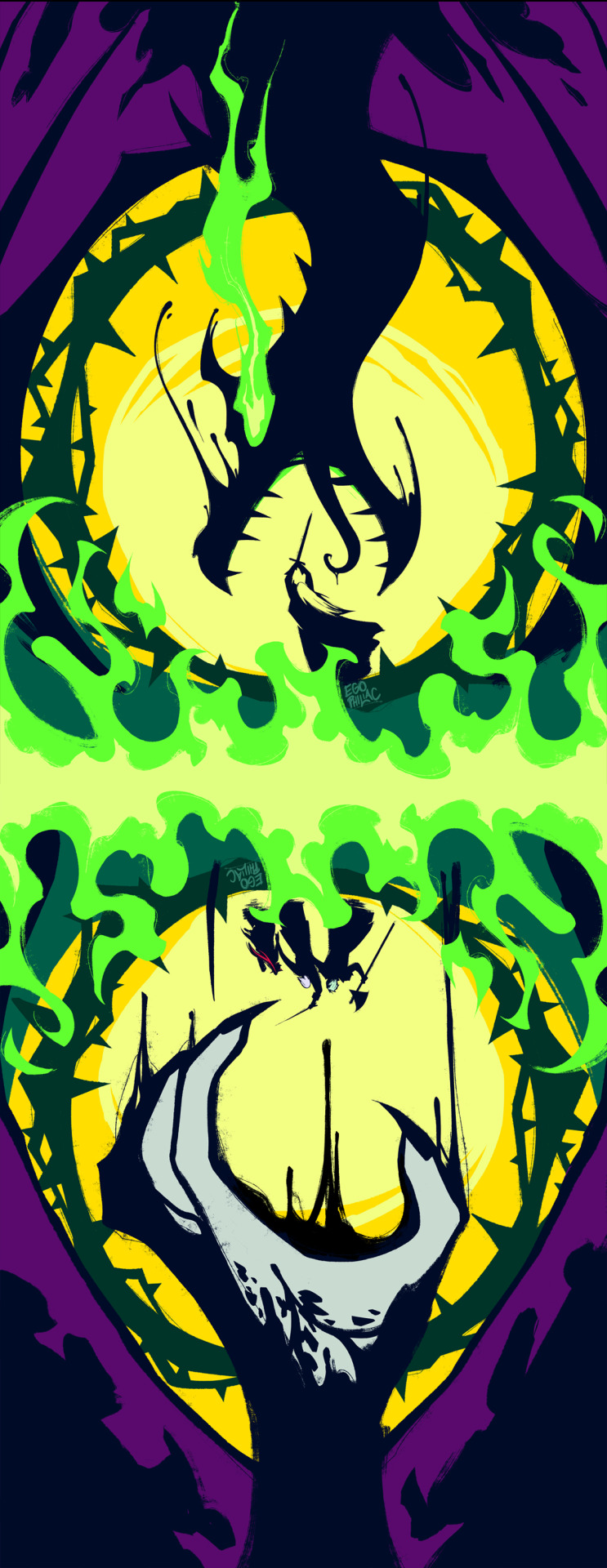
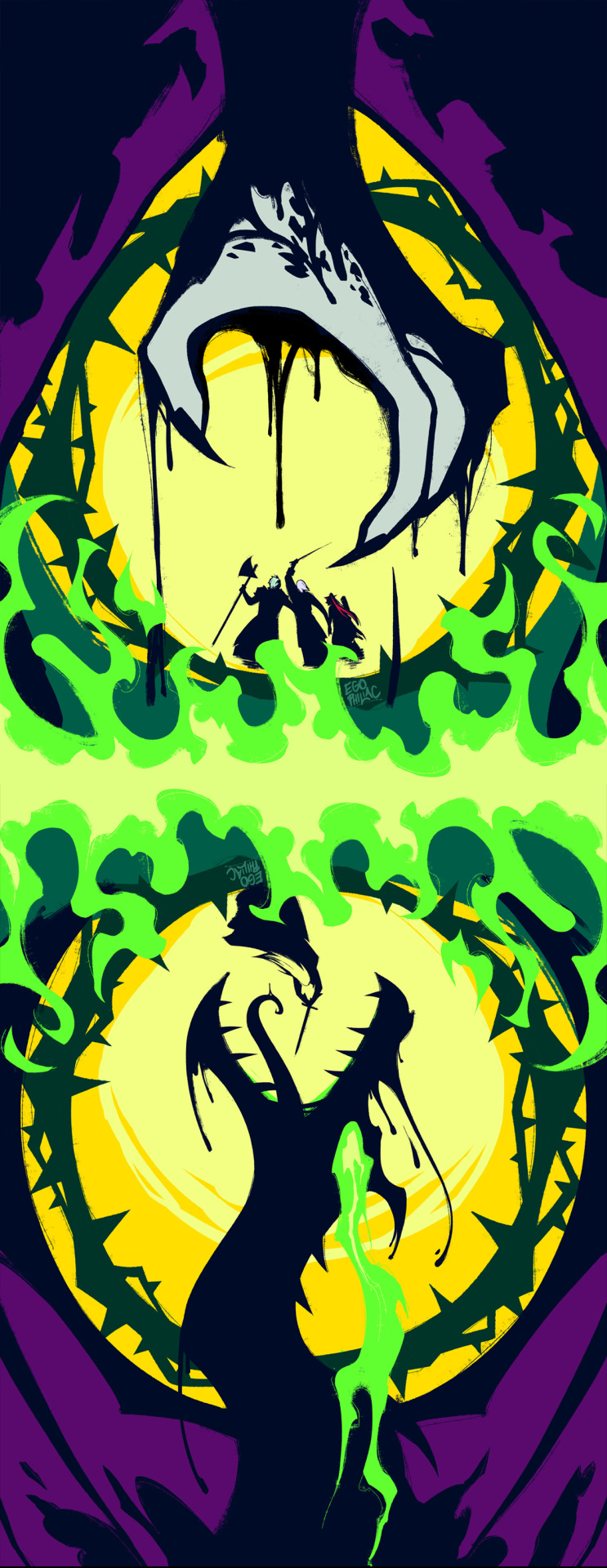
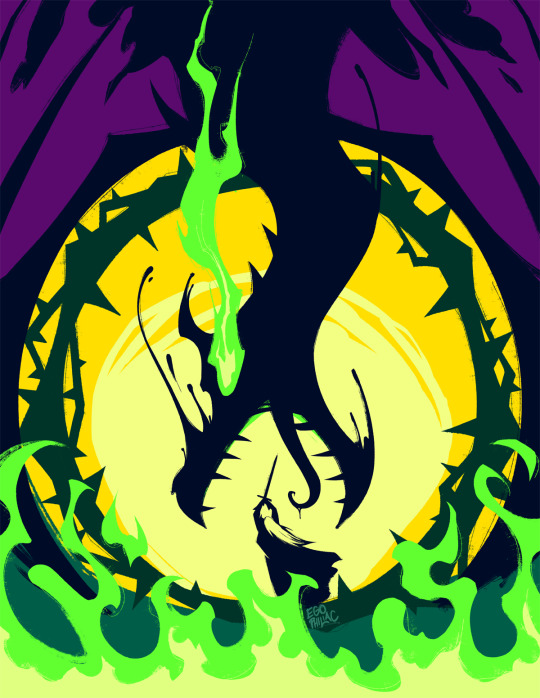
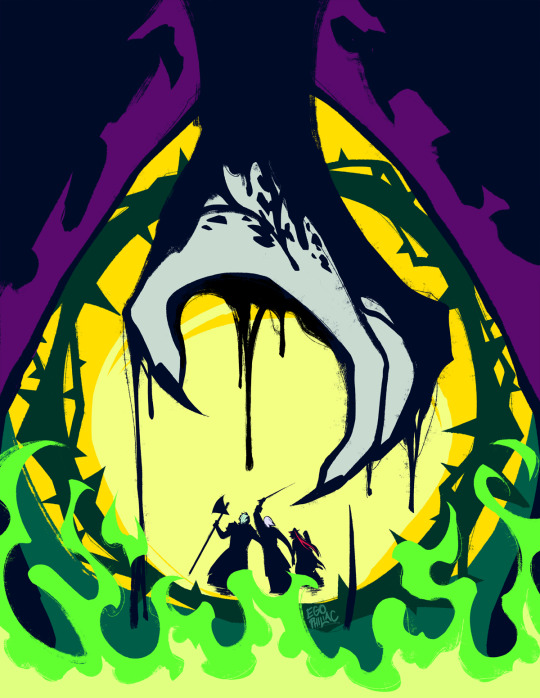
like mother, like son, but less wholesome this time?
(I couldn't decide whether or not to put them together, so have them in all the different ways!)
#art#twisted wonderland#twisted wonderland spoilers#twisted wonderland episode 7 spoilers#twisted wonderland episode 7 part 6 spoilers#twisted wonderland book 7 spoilers#twisted wonderland book 7 part 6 spoilers#if i had a nickel for every time a draconia ob'd while trying to save lilia#and had to be taken out by a member of this one specific bloodline with sparkly celestial hair that a fairy blessed#et cetera and so on you know the rest#i mean we know it's going to end better this time but y'know. the parallels!#oh meleanor my beloved#of course...of course she ob'd...it makes sense...#everything about this whole situation just massively sucked for everyone huh#well at least silver's biodad felt guilty about killing her i guess#i dunno i'm just havin' some feelings about all of this#lilia had both the absolute worst and absolute best things about his life come out of all this#down the two great loves of his life and also his job and reputation and 200 years of his life and uhhhh kind of everything else honestly#up some kids though!#(also one of those kids is a baby dragon who is JUST the right size to put silly hats on)#they were worth it to him! or maybe they were worth not giving up? look i am DEEP in the blorbosauce right now#if you don't want to read emotional tags about lilia twistedwonderland then don't come to egophiliac.tumblr.com
3K notes
·
View notes
Text
“But we need to find you some kind of disguise, you’re too conspicuous in those clothes.”
“Whatever you say, I’m entirely in your hands.”
Okay.
This is their reaction after, btw.
#very heterosexual of them#i appreciate they kept this part in because it’s one of those rare ones where they actually act like two heterosexual men 🥰#…#right????#don’t you think so????#let’s take into consideration that it’s the first time someone notices that maybe going around in full armour and in a camelot red cape#isn’t the best way to not get caught by bandits😭#merthur#bbc merlin#merlin#arthur pendragon#merlin bbc#merlin x arthur#bbc merlin scene#episode 4x12#merlin tv#don’t come at me with ‘oh but arthur was under some sort of enchantment!’#let me live my gay life#with all due respect#and also it was just to make arthur more pliant#so it doesnt mean that’s not what he actually meant😭#it’s what he meant#he just would never dare to say it aloud💀#especially to merlin
405 notes
·
View notes
Text
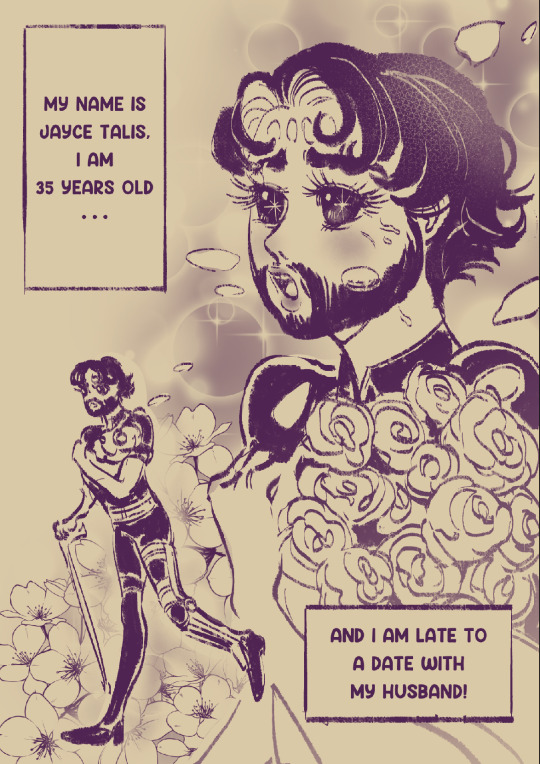

Vol. 1 of NEW shoujo manga! 『My Science Partner Turned into an Eldritch Horror Then We Got Isekai’d and Now He’s My Husband?!?!?!』
#ok so me drawing Jayce with big watery eyes has devolved into this#and I think it’s my best work#this manga has 76 volumes#and also a 12 episode anime which has a cancelled season two that keeps getting rumours it will be picked up again but you know it won’t#jayvik#Jayce arcane#viktor arcane#arcane#also follow me on bsky#totoart
314 notes
·
View notes
Text



thinking thoughts
#tw flashing#patrick stump#fob#fall out boy#patrickstumpedit#fobedit#*fob#*#did i start oth for their two-episode cameo? why yes yes i did#i'm five seasons in deep now i can't tell if it's the best show in the world or the worst thing i've ever seen.. a very fun time i'm having#this Was meant to be a full band set but. the patrick tunnel vision kicked in the moment i opened mpv up whoops#this is for me and me only i deserve this#can the family members of mine that follow me on here please ignore this though okay thanks
599 notes
·
View notes
Text




#bucktommy#zahraa’s bakwaas#this was in the span of two episodes.#TWO.#this show hasn’t done the best job with continuing and carrying over threads from one episode to another lately but yet. they did w this one#idk
347 notes
·
View notes
Text
There are only two episodes in book 3 completely dedicated to help fire nation civilians in need. Two episodes who bring perspectives of the fire nation citizens (and not only the royals), the affects of war on everyone, and what is important in order to save the world
Two Aang and Katara CENTRIC episodes
















Two victims of the fire nation, two survivors and the two most empathetic characters of the series :)
#avatar the last airbender#atla#aang#katara#kataang#the headband#the painted lady#mind you according to some people one of them has no empathy#i think you should rewatch this series#two of the best episodes
508 notes
·
View notes
Text
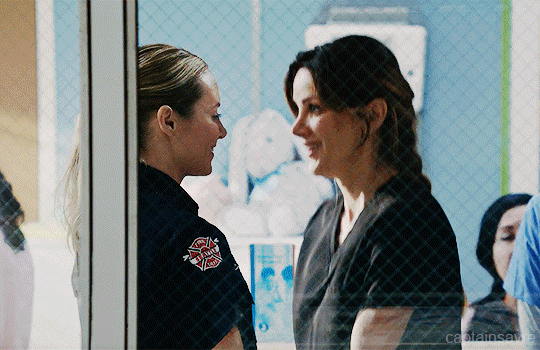
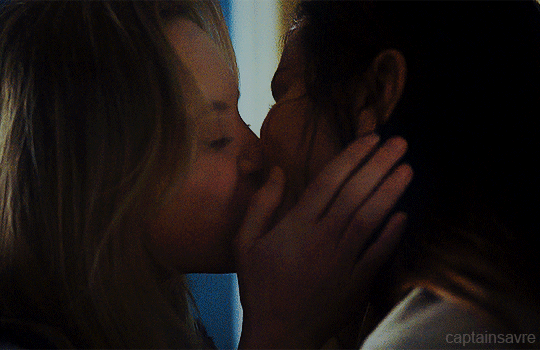
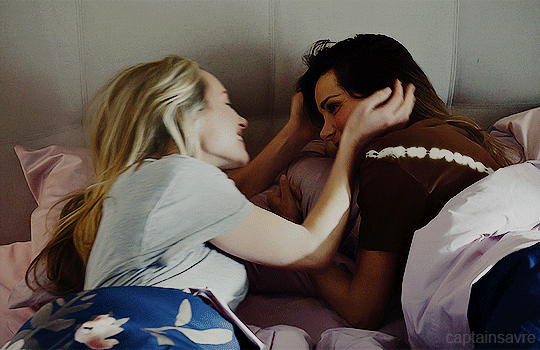
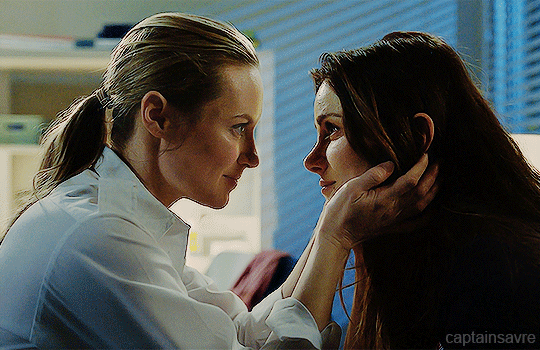
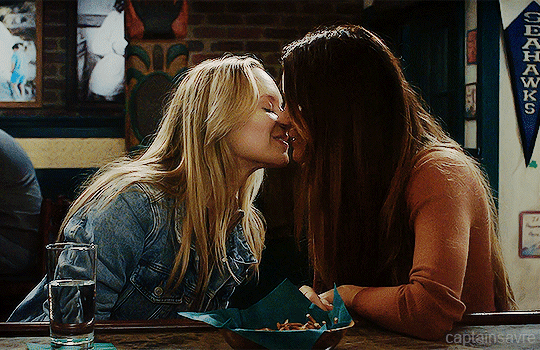
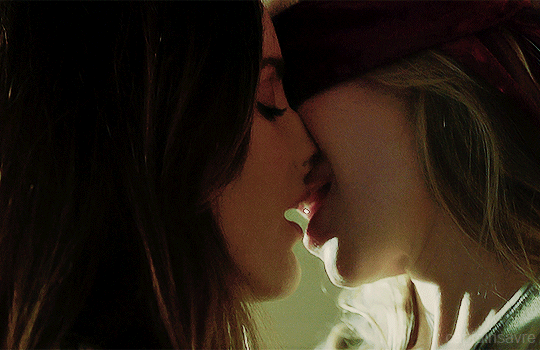
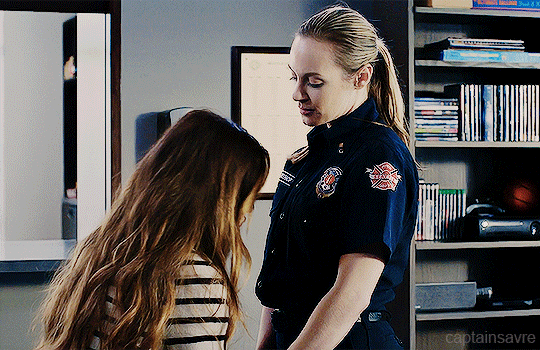
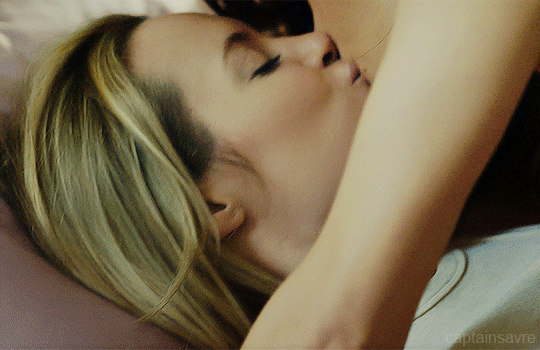
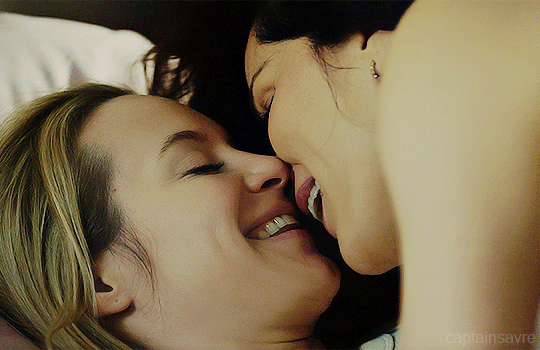
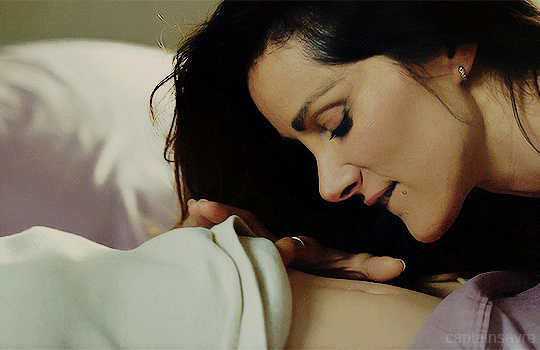

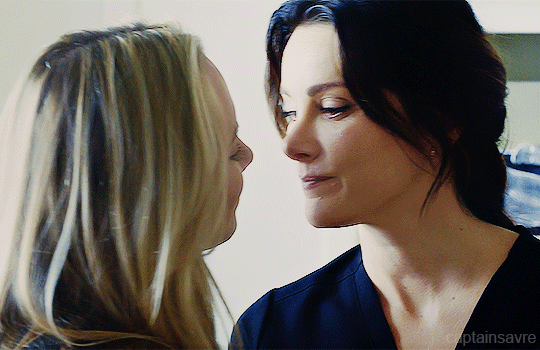
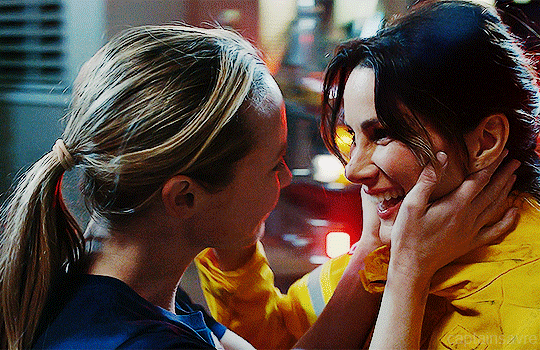
Maya and Carina || STATION 19 ↳ All kisses (Season 7)
#more like attempts than actual kisses 🙄#7x04 and 7x09 will live forever in my heart tho 🥹❤️#the best two episodes of the season and maybe the entire series#marina#maya and carina#maya x carina#carina x maya#maya bishop#carina deluca#station 19#station19#station19edit#save station 19#danielle savre#stefania spampinato#marina kisses#mine#tv: s19#otp: you’re my home
765 notes
·
View notes
Text
#look i know there's more but i only had 10 options and these are objectively the best#will including the shooting skew the results? probably lmao#i actually can't choose though#i fucking LOVE the truck bombing and train derailment#and 1x04 and 5x16 are two of the best episodes ever ever ever#but then the shooting is the *shooting*!!!!!!!!!!!!!!!!!!!!!!!!#and the well collapse is like a movie!!!!!!!!!!!!!!!!!#and asdjhf i could make a case for all of them actually#anyway tell me whyyyyy#i wanna hear people's thoughts#like i can p much guess how people rank the opening disasters but we don't talk about these ones as much#911 related
180 notes
·
View notes
Text
IM GOING TO CRY THIS IS AMAZING I DIDNT EXPECT THIS?! THIS WAS WHAT SHE WAS REFFERING TO WHEN SHE SAID “why would you have recovered me all that time back?” IN BFB IM GOING TO CRY!? I LOVE THE FACT FIREY STILL CARES ABOUT HER-
#Bfdi#bfdia#bfb#leafy bfdi#bfdi leafy#firey bfdi#bfdi Firey#bfdia 13#object show community#object shows#osc#Bfb leafy#leafy bfb#bfb firey#firey bfb#Leafy bfdia#bfdia leafy#MY FEELINGS#I LOVE THIS#BEST EPISODE#battle for bfdi#battle for bfb#battle for dream island#Best scene#fireafy#i love these two#❤️❤️❤️❤️❤️#Bean yaps
470 notes
·
View notes
Text
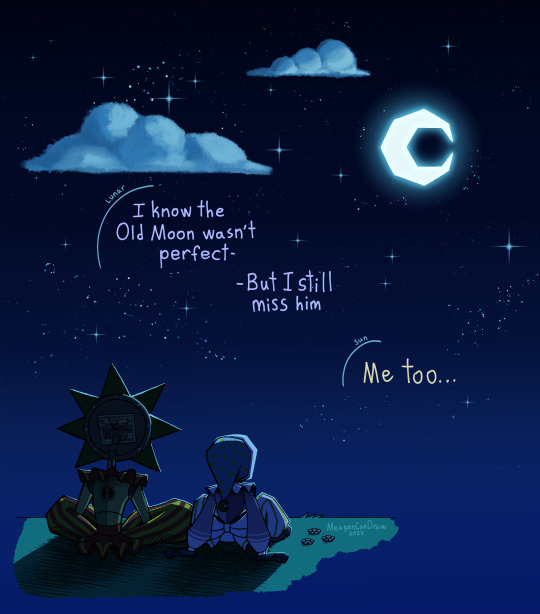
You ever think about how neither of them got to say goodbye?
#TSAMS#Sun and Moon Show#The Sun and Moon Show#TSAMS Lunar#SAMS Lunar#Sun#SAMS Sun#FNAF Sun#FNAF#Five Nights At Freddy's#MeaganCanDraw#I love New Moon a lot don't get me wrong but Old Moon's and Sun's relationship wasn't black and white (as much as NM wants to insist it was#YES Old Moon treated Sun horribly YES he wasn't the best person but#their relationship was also complicated and messy and they both genuinely loved each other despite everything#So much of what they did was for each other and that adds even more to the tragedy of their relationship and Moon's death#Sun and Old Moon's final conversation was them fighting#Moon's final in-person words to him were “I love you and I'm sorry”#to which Sun didn't say anything bc he was mad at him (which I don't blame him for given everything that happened in that episode)#Do you think Sun has realized this? How often does he go back to that moment#How often has he imagined himself saying or doing something different? Something that would've resulted in them leaving that bunker togethe#Meanwhile Lunar lost the person who gave him a new life and a family that actually cares about him#And he was in Moon's head for months and saw first hand how much his regrets and trauma affected him#Both of which would eventually destroy him due to the cycle of self-loathing he was trapped in#How much does HE think about that?#Anyway sorry for not posting for nearly (checks watch) two years??#It'll likely happen again#1k
2K notes
·
View notes
Text
After telling Home he forgave him and begging him to come back to eat the food Peach made him, the last thing Peach said to Home before Home returned to his body was a plea for Home to come back for Pang.

Home isn't just a sugar daddy.

He is Pang's best friend.
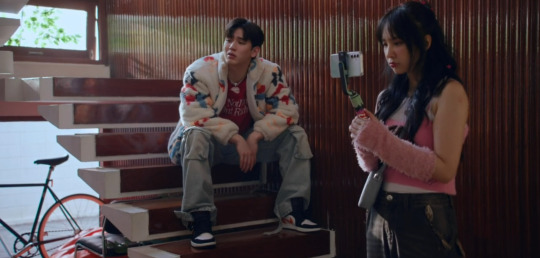
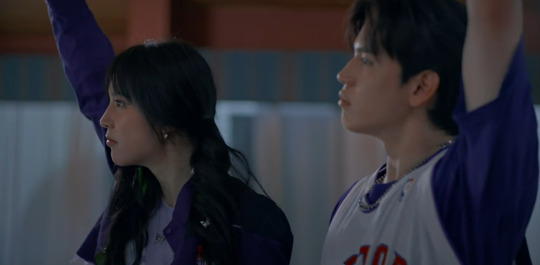



When Home and Pang thought they lost their best friend, these normally loud and theatrical characters became quiet.
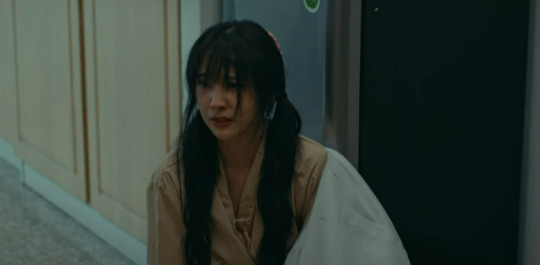

Because they are the same.

Which is why Home noticed what was happening with Pang even when her own brother didn't.
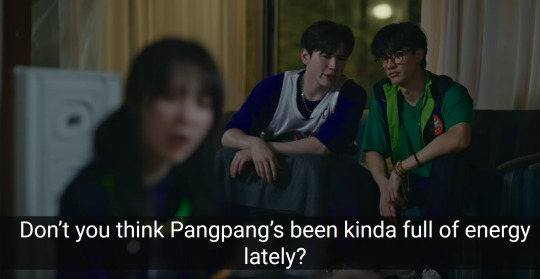
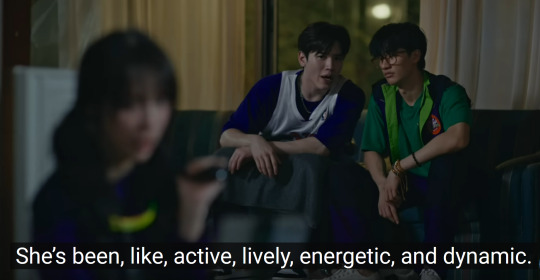

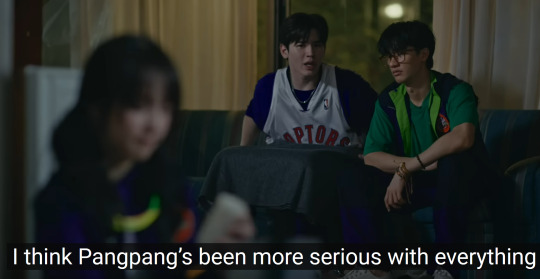

People mistake Home and Pang's behavior for silliness and dismiss their contributions, but Home and Pang actually try really hard all the time to fix problems even if their approach is out of the norm.

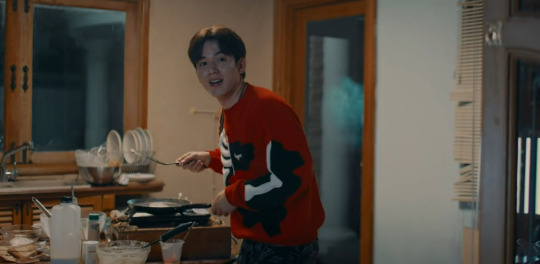
They are besties and siblings.

And Peach knows that Pang has already lost enough family.
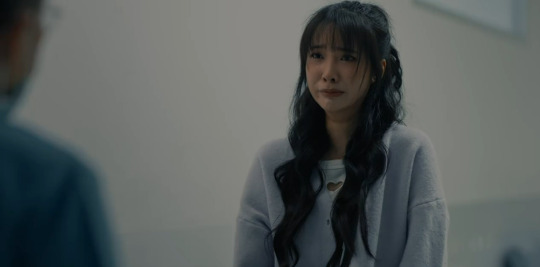
So Peach made one last attempt to get through to Home by reminding him that even if he didn't want to come back for Peach, he had to come back for their little sister.

Pang and Home understand each other without having to speak a word.
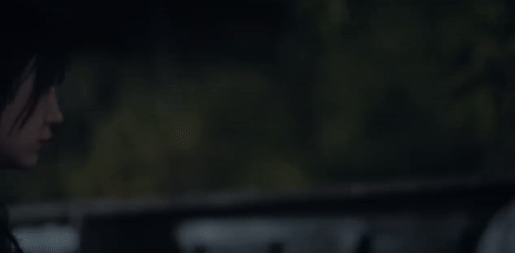
They get each other when nobody else does.
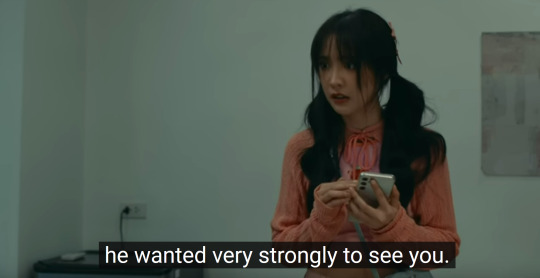
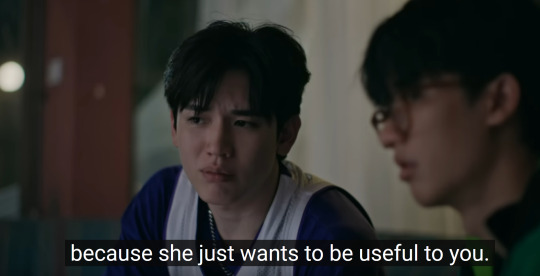
And Peach knows that.

So even if the boys were actually upset with each other, they don't want to see Pang upset.

She just wants the best for them.

And they want what's best for her.

Pang has two brothers who love her dearly.
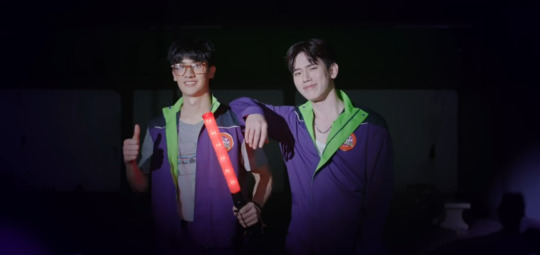
So much, in fact, that they both came back for her.
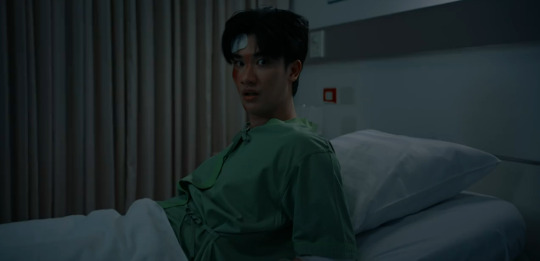

#peaceful property#I am unwell about this show#it's all I think about#my brain is on two modes: jack and joker and peaceful property#that's it!#everything else is confetti#pang and home are best friends#and the best siblings#home really inherited a sister and a boyfriend thanks to these ghosts#pang isn't just his sister-in-law#she was the final push for him to get back in his body#I need the last four episodes now before I go crazy!
288 notes
·
View notes